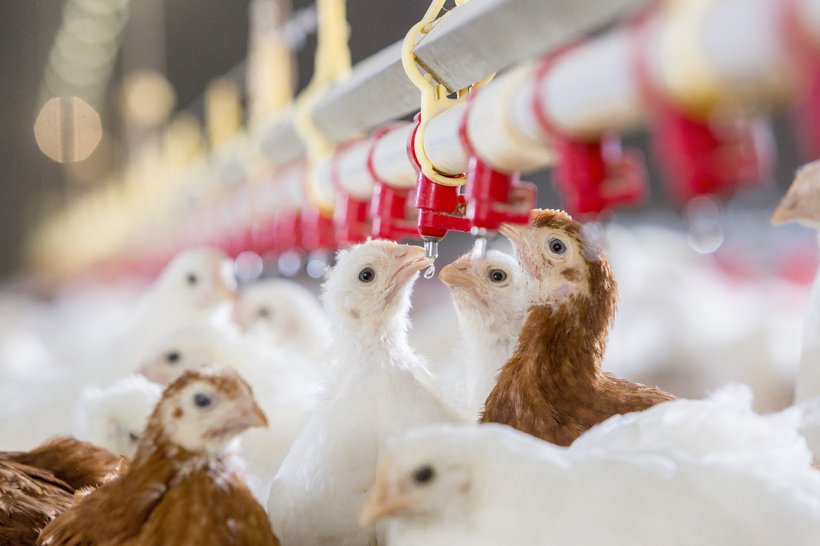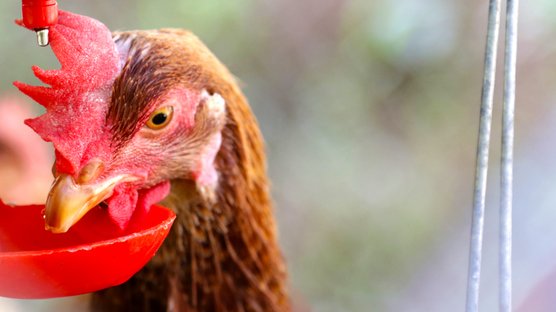
Published on Sept. 2, 2019
Pay attention to drinking water
Without sufficient water intake, laying hens are unable to reach their genetic potential. Just ensuring an adequate water supply is not enough. Every new day, careful water management is necessary to prevent any health issues that will result from poor water hygiene.
In order to stimulate water intake, the drinking water must not contain any hazardous substances or impurities. Drinking water also serves as a solvent for vaccines and medication. In order to improve their effectiveness, clean, fresh drinking water is key.
What can you do to check the drinking water quality and make sure that birds are drinking correctly?
- Check the water at the source (the well) or where the water enters the house.
- Check daily if the drinkers or drinking nipples are working correctly.
- Monitor if the birds can drink easily, are the drinkers or drinking nipples placed at the correct height?
- The proper drinking position of birds is upright, with their heads up so the water runs through their throats. Don’t forget that chickens are not able to swallow!
- Raise your drinkers to prevent contamination with the litter.
- Clean bell drinkers daily and open water systems
- Make sure that the number of drinkers / nipples are sufficient (according to the specifications)
When you make use of water from your own well, it is crucial to keep your water quality at the right level. Any substance that should not be in the drinking water should be filtered out.
Young chicks are sensitive to poor water quality. They are in their growth stage, and therefore, require good drinking water quality. As their gut flora is still developing, they are less resistant to poor water quality. The warm brooding house, combined with a low water flow due to lower water consumption, make the ideal conditions for the development of biofilm: a slimy film consisting of bacteria, yeasts and molds. Biofilm can form quickly on the surface of the water lines.
When you apply drinking water vaccination, always make sure that the water is fresh, clean, cool and that the water supply system is working properly. Also remember that you cannot deliver vaccines in chlorinated water as it will kill/inactivate the vaccine. Turn off chlorine and run vaccine stabilizer 24 hours before vaccination
The acidity (pH) affects both the solubility and the effectiveness of the vaccinations and medication. It is essential to flush the drinking systems well beforehand! Make sure that you always flush the drinking system after every water treatment, as residues can stay behind and can negatively impact drinking water quality and drinking behavior. Adding vaccines or medication could give the drinker water a bitter taste, as a result birds can drink less. Monitor the drinking behavior of your birds carefully to prevent dehydration.
Another important aspect of drinking water quality is the temperature of the drinking water: bacteria, fungi and molds grow much faster in warm water. Therefore, always check the temperature and the quality of the water at both ends of the line. Large differences can be present between the beginning and the end of the system. The water temperature should be below 25°C. Protect your water reservoirs / water tanks from direct sunlight to keep the drinking water as cool as possible. When your water reservoirs are black, paint them white, as the white color will reflect the sunlight which will keep the tanks cooler.
Testing the water quality
- Fill one glass with water that enters the house and one glass at the end of the water line. Check its taste, smell, clarity and color.
- Collect water in clean bottles that can be closed. Store them for one week and check the water quality again

